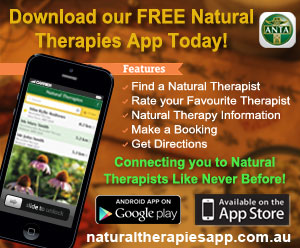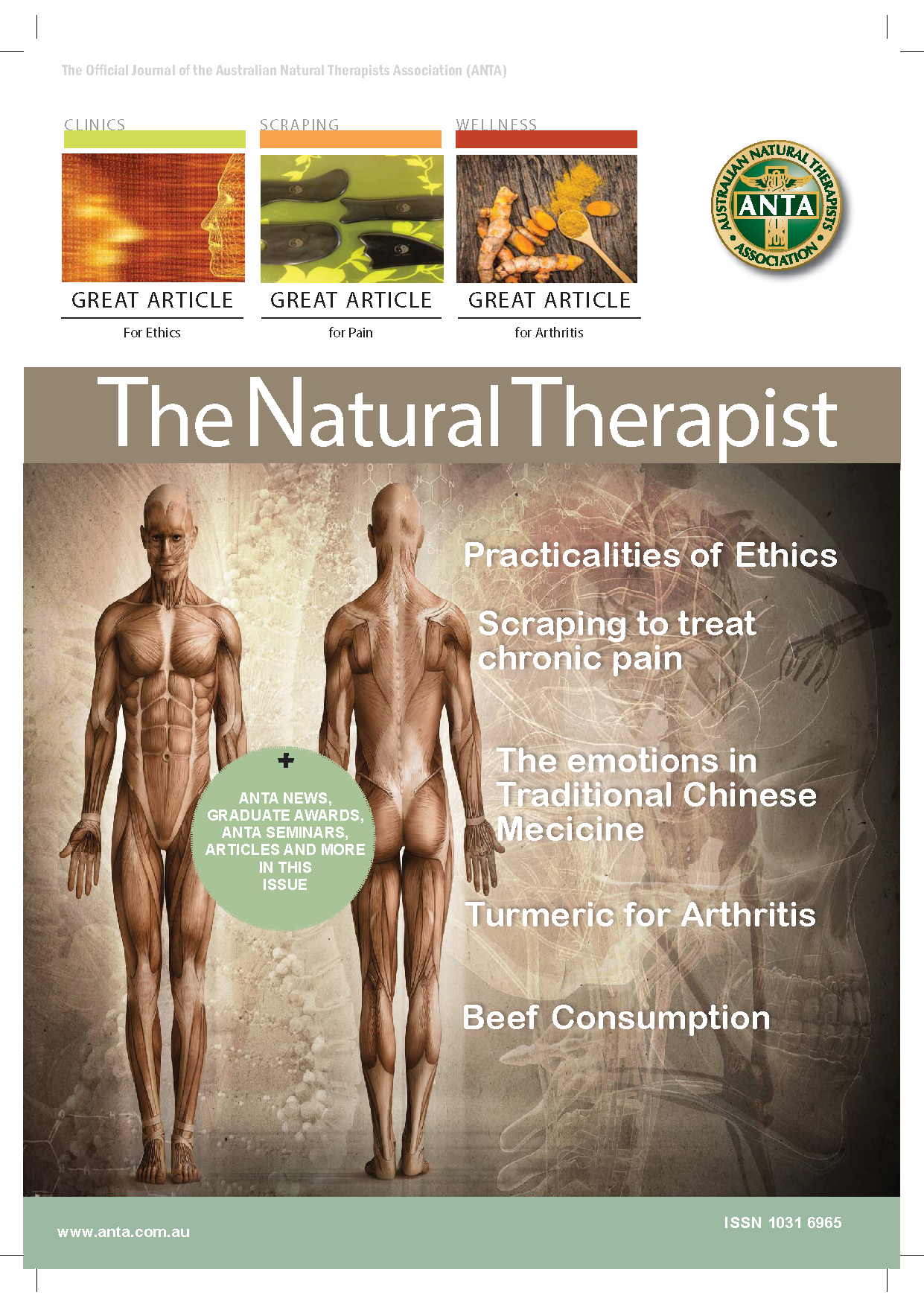Recognised Courses
Course Assessment and Recognition
The purpose of this page is to provide guidelines for the assessment of courses delivered in Australia in a fair, transparent and objective manner.
ANTA is committed to Quality Assurance and Public Safety and believes course assessment is a service that benefits prospective students, graduates, the profession and the general public and course assessment must be open and transparent. Course assessment/recognition should be not compromised, contingent upon, or negotiated by charging course providers an assessment fee.
ANTA assesses courses based on the information submitted by course providers and no fees are payable. Course assessment by ANTA is FREE of CHARGE.
Course providers are notified by ANTA if the course(s) submitted for assessment have been successful for inclusion on the ANTA Recognised Course List or require further amendments to meet ANTA’s requirements.
Courses that meet the guidelines are listed on the ANTA Recognised Courses List.
Course providers who have courses on the ANTA Recognised Course List are presented with the “ANTA Certificate of Course Recognition”.
Course providers seeking recognition of course(s) by ANTA can submit courses for assessment on- line.
Graduates of courses recognised by ANTA are eligible to apply for full membership and accreditation with ANTA in a seamless process.
Students enrolled in courses recognised by ANTA are eligible to apply for Student Membership with ANTA at NO COST and convert to Full Member status upon graduation.
The primary approach and methodology applied by ANTA is based on ‘risk management’ to enable the recognition of courses and to ensure to the greatest extent possible the delivery of a safe standard of practice to the general public.
ANTA uses a three level review and assessment process in the evaluation of courses for recognition by ANTA.
ANTA assesses courses that include elements of flexible learning and self directed learning strategies however, in the interests of Quality Assurance and Public Safety, ANTA does not assess or recognise undergraduate courses delivered by distance education and/or do not have minimum requirements of supervised on campus clinical training.
ANTA employs the following in course assessment/reviews:
- Courses submitted by providers are pre-evaluated by the Australian Natural Therapists Academic Committee (ANTAC) and forwarded to the Australian Natural Therapists Accreditation Board (ANTAB) for review.
- The courses and ANTAC recommendation are assessed and reviewed by ANTAB and where course(s) meet the required criteria, ANTAB makes recommendation to ANTA National Council.
- ANTA National Council reviews the course and recommendation by ANTAB and makes the final decision to recognise the course.
- ANTA encourages courses to be delivered and based on the educational objectives of the institution.
- ANTA encourages courses to be delivered and based on the evolution of the profession and mechanisms of teaching.
- ANTA encourages course providers to consider the effects on stakeholders, with the aim to produce better trained and more clinically experienced graduates.
- ANTA encourages the continued development of curricula within Natural and Traditional Therapy courses to effectively prepare students for entry into the profession.
- ANTA encourages curricula to be reviewed annually or as external registration requirements develop.
- Due to quality standards and practical aspects required in clinical practice a substantial proportion of undergraduate courses should be delivered on campus.
- ANTA believes clinical competency, Philosophy and Professional issues are important to the profession and public safety.
- ANTA will assess post graduate courses delivered by distance education for recognition purposes.
- ANTA course recognition criteria is reviewed regularly, to ensure relevance to the delivery of courses in line with the needs of developing modalities.
- ANTA Course Recognition Guidelines are evaluated and benchmarked regularly to ensure relevance and currency to the profession, government and public requirements/expectations.
- ANTA is involved with the development and review of Health Training Packages (HTP) – the HTP has provided a minimum standard as well as a mechanism for students to transfer to other institutions.
- ANTA consults with and participates on College, TAFE and University Course Advisory Committees.
- The "ANTA Recognised Course List" is managed by ANTA and is the property of ANTA
- ANTA reserves the right to recognise or not recognise any courses
- ANTA reserves the right to add or remove any courses from the "ANTA Recognised Course List"
Course Module/Category Guidelines:
Biomedical Sciences 25 – 35% of course
Including anatomy & physiology, pathology, pharmacology, toxicology, microbiology chemistry, biology biochemistry, phytochemistry, symptomatology and diagnosis
Modality specific 30 – 45% of course
Including philosophy, relevant modality including diagnostic framework
Clinical Practicum 25% - 35% of course
Specific to the modality(s) covered, can include, but is not limited to observation, case taking, tutorials, practice management, referral procedures, clinical record keeping, etc – evidence would need to be collected such as policy of student clinic and clinic handbook
Counselling/Interpersonal skills, Ethics, Research, Professional issues 5 – 10% of course
Includes Ethics and jurisprudence, research assessment/methodology, integration of the modality into the Australian healthcare system, current global climate of health care, critical thinking and clinical judgement, communication with other healthcare professionals, professional requirements, financial record keeping, adverse event reporting, notifiable and transmittable diseases.
Guidelines for Course Hours:
The breakdown of hours for each award has encouraged flexibility in course delivery as well as focusing on the effective performance of a practitioner.
The minimum expected supervised contact hours for each award is broken down for each of the following levels:
AS A GUIDELINE IT SHOULD BE NOTED THAT HEALTH FUNDS WILL NOT RECOGNISE GRADUATES OR PRACTITIONERS AS HEALTH SERVICE PROVIDERS IF AN UNDERGRADUATE COURSE IS COMPELTED SUBSTANTIALLY ONLINE OR BY DISTANCE EDUCATION.
Award |
Hours |
Doctoral Degree |
A minimum of a 4000 hour course in the modality |
Masters Degree |
A minimum of a 4000 hour course in the modality |
Graduate Diploma |
To be assessed by ANTAB |
Graduate Certificate |
To be assessed by ANTAB |
Bachelor Degree 1 |
A minimum of a 3000 hour course in the modality |
Bachelor Degree 2 |
A minimum of a 2600 hour course in the modality |
Advanced Diploma 1 |
A minimum of a 2600 hour course in the modality |
Advanced Diploma 2 |
A minimum of a 2000 hour course in the modality |
Diploma |
A minimum of a 1200 hour course in the modality |
Diploma |
A minimum of a 700 hour course in the modality |
Guidelines - Diploma:
Diploma 1 (Remedial Massage, An Mo Tui Na, Shiatsu, Oriental Remedial Massage & Aromatherapy) |
||
Length of Course in years |
2 years |
|
Student on Campus |
500 hours |
|
Student off Campus |
500 hours |
|
Clinical practicum |
200 hours |
100% attendance |
Other |
|
|
Total Course |
1200 hours minimum |
|
* Note: Diploma of Remedial Massage Therapy
To be registered as a provider with Health Funds including Medibank Private and to be accredited in Remedial Massage Therapy by ANTA Courses must also meet the following education requirements:
- The foundation/structure of the Diploma of Remedial Massage must in effect be either:
- 12 month full time course (note - a course that commences in the early part of the year with continuous attendance/study and finishes near the end of the year is deemed to be a 12 month course), or
- 18 month part time course, or
- of lesser time than the above as a result of recognition of prior learning or credits which are shown on the academic statement/transcript
- 20% of the course must contain clinical training to be completed on campus, supervised by a trainer with appropriate qualifications (note - any training completed off campus at a clinic with a practitioner is not acceptable)
- The following practical course components which require skills based knowledge must also be completed on campus – surface anatomy, palpation, clinical examination, assessment of conditions, treatment plans, tactile therapies, massage techniques and other associated therapeutics and techniques
All associations recognised by Medibank Private are required to ensure graduates meet the above educational requirements before submitting them to Medibank Private to be registered as remedial therapy providers.
Diploma 1 – Overall Hours – Breakdown of Content |
||
Biomedical Sciences |
200 - 300 |
|
Modality Theory &Techniques |
600 - 700 |
|
Clinical Practicum |
200 - 300 |
|
Professional issues |
100 - 120 |
|
Total Course |
1200 hours minimum |
|
Diploma 1 – Clinical Practicum (incl. in the total course hours) |
||
Supervised Clinic on Campus |
200 |
|
Supervised Clinic off Campus |
0 |
|
Non-supervised Clinic |
|
|
Other |
|
|
Required Attendance Rate |
100% |
|
Total Course |
200 hours minimum |
|
Guidelines – Diploma (continued):
Diploma 2 (Counselling) |
||
Length of Course in years |
2 years |
|
Student on Campus |
250 - 300 |
|
Student off Campus |
250 - 300 |
|
Clinical Practicum |
200 |
100% attendance |
Other |
||
Total Course |
700 hours minimum |
|
Diploma 2 – Overall Hours – Breakdown of Content |
||
Biomedical Sciences |
100 - 120 |
|
Modality Theory |
300 - 350 |
|
Clinical Practicum |
200 - 250 |
|
Professional issues |
80 -100 |
|
Total Course |
700 hours minimum |
|
Diploma 2 – Clinical Practicum (incl. in the total course hours) |
||
Supervised Clinic on Campus |
100 |
|
Supervised Clinic off Campus |
100 |
|
Non-supervised Clinic |
0 - 50 |
|
Other |
||
Required Attendance Rate |
100% |
|
Total Course |
200 hours minimum |
|
Guidelines – Advanced Diploma:
Advanced Diploma 1 (Naturopathy, Acupuncture) |
||
Length of Course in years |
3yrs FT |
|
Student on Campus |
1000 -1200 |
|
Student off Campus-includes DSL |
1000 -1200 |
|
Clinic |
600 |
100% attendance |
Other |
|
|
Total Course |
2600 hours minimum |
|
Advanced Diploma 1 – Overall Hours – Breakdown of Content |
||
Biomedical Sciences |
800 |
|
Modality Theory |
1100 -1200 |
|
Clinical Practicum |
600 |
|
Professional issues |
100 - 200 |
|
Total Course |
2600 hours minimum |
|
Advanced Diploma 1 – Clinical Practicum (incl. in the total course hours) |
||
Supervised Clinic on Campus |
400 |
|
Supervised Clinic off Campus |
200 |
|
Non-supervised Clinic |
|
|
Other |
|
|
Required Attendance Rate |
100% |
|
Total Course |
600 hours minimum |
|
Guidelines – Advanced Diploma (continued):
Advanced Diploma 2 (Herbal Medicine, Homoeopathy, Nutrition, Remedial Therapies, Myotherapy & Musculoskeletal Therapy) |
||
Length of Course in years |
3 years FT |
|
Student on Campus |
800 hours |
|
Student off Campus-includes DSL |
800 hours |
|
Clinic |
400 |
100% attendance |
Other |
|
|
Total Course |
2000 hours minimum |
|
Advanced Diploma 2 – Overall Hours – Breakdown of Content |
||
Biomedical Sciences |
400 - 600 |
|
Modality Theory |
1000 -1200 |
|
Clinical Practicum |
400 |
|
Professional issues |
100 - 200 |
|
Total Course |
2000 hours minimum |
|
Advanced Diploma 2 – Clinical Practicum (incl. in the total course hours) |
||
Supervised Clinic on Campus |
250 |
|
Supervised Clinic off Campus |
150 |
|
Non-supervised Clinic |
||
Other |
||
Required Attendance Rate |
100% |
|
Total Course |
400 hours minimum |
|
Guidelines – Bachelor Degree:
Bachelor Degree1 Naturopathy & Acupuncture) |
||
Length of Course in years |
3 - 4yrs FT |
|
Student on Campus |
1400 |
|
Student off Campus |
1000 - 1400 |
|
Clinical practicum |
600 |
100% attendance |
Other |
||
Total Course |
3000 hours minimum |
|
Bachelor Degree1 – Overall Hours – Breakdown of Content |
||
Biomedical Sciences |
800 – 1000 |
|
Modality Theory |
1200 - 1400 |
|
Clinical Practicum |
600 |
|
Professional issues |
200 - 250 |
|
Total Course |
3000 hours minimum |
|
Bachelor Degree1 – Clinical Practicum (included in the total course hours) |
||
Supervised Clinic on Campus |
400 - 500 |
|
Supervised Clinic off Campus |
200 |
|
Non-supervised Clinic |
|
|
Other |
|
|
Required Attendance Rate |
|
|
Total Course |
600 hours minimum |
|
Guidelines Bachelor Degree (continued):
Bachelor Degree2 (Herbal Medicine, Homoeopathy, Nutrition, Myotherapy, Musculoskeletal Therapy & Remedial Therapy) |
||
Length of Course in years |
3yrs FT |
|
Student on Campus |
1100 - 1300 |
|
Student off Campus |
1100 - 1300 |
|
Clinical practicum |
400 |
100% attendance |
Other |
||
Total Course |
2600 hours minimum |
|
Bachelor Degree2 – Overall Hours – Breakdown of Content |
||
Biomedical Sciences |
700 – 900 |
|
Modality Theory |
1100 - 1400 |
|
Clinical Practicum |
400 |
|
Professional issues |
150 - 250 |
|
Total Course |
2600 hours minimum |
|
Bachelor Degree2 – Clinical Practicum (included in the total course hours) |
||
Supervised Clinic on Campus |
250 - 400 |
|
Supervised Clinic off Campus |
150 |
|
Non-supervised Clinic |
|
|
Other |
|
|
Required Attendance Rate |
|
|
Total Course |
400 hours minimum |
|
Guidelines - Masters Degree:
Masters Degree – Overall Hours – Mode of Delivery |
||
Length of Course in years |
Two PT |
|
Student on Campus |
200 |
100% attendance |
Student off Campus-research DSL |
1000 |
|
Clinic |
||
Other * |
||
Required Attendance Rate |
||
Total Course |
1200 hours on top of original award |
|
Masters Degree – Overall Hours – Breakdown of Content |
||
Biomedical Sciences |
500 – 1000 |
|
Modality Theory |
500 - 1000 |
|
Clinical Practicum |
|
|
Professional issues |
200 |
|
Total Course |
1200 hours on top of original award |
|
Masters Degree – Clinical Practicum (included in the total course hours) |
||
Supervised Clinic on Campus |
nil |
|
Supervised Clinic off Campus |
nil |
|
Non-supervised Clinic |
||
Other |
||
Required Attendance Rate |
||
Total Course |
From previous award + Private clinical experience |
|
Guidelines For Postgraduate Courses:
ANTA requires graduates applying for membership or an upgrade in membership status to have completed a primary (undergraduate) qualification relating to the postgraduate qualification undertaken.
Flexible delivery or self-directed learning in a postgraduate course(s) are acceptable modes of delivery, provided the student has previously completed an appropriate undergraduate course of study delivered on campus relative to the postgraduate course/qualification being undertaken.
ANTA Accreditation Policy:
Associations are not Registered Training Organisations (RTO) and can only accredit practitioners in the modality(s) shown on the qualification(s) issued by the education provider.

Use our search facility to find what you're looking for on the ANTA website.


